Culture of Peace
Justification:
In Honduras, overweight and childhood obesity are prevalent health problems. In 2016, a study was carried out with a population of (n = 1373) students from San Pedro Sula, in young people where there was a prevalence of obesity factors, in which it was obtained that 19.2% presented factors for the suffering of overweight and obesity (Cerna, Gonzales, Rodríguez, de Ferez y Paz, 2017), prevalence similar to those reported in the world literature for this age group (Rodríguez, Rodas, Mairena, and Sánchez, 2015).
The prevalence of obesity in the country could vary significantly in schoolchildren according to ethnicity, sex, and age, as Fuentes, et al. (2016), as well as the social environment, eating habits and moods of children (Cordero, 2019); mainly differences have been observed among students in private schools, where there is a greater prevalence of overweight and obesity compared to those in public schools, due to the influence of the socioeconomic level (Ramírez-Izcoa, et al., 2017).
In order to respond to the epidemic of overweight-obesity, sedentary lifestyle and low self-esteem of Costa Rican children, it has been proposed to intervene the school environment with the Schools in Motion Model that follows a socio-ecological approach that emphasizes the promotion of Health should focus not only on intrapersonal behavioral factors but also on multi-level factors that influence the specific behavior in question. Thus, the socio-ecological model focuses on the relationships between individuals and the social, physical and political environment (Ward et al.). using social theories as established by the National Institute for Health hand Clinical Excellence (2007).
Cultura de Paz, as the Moving Schools program in Honduras was called, aims to promote physical activity in school populations with the exposed problem, health promotion and intervention efforts from this program, focus not only on the behavioral options of each individual but also of factors that influence those decisions. (Gregson J, Foerster S, Orr R, L Jones, et al, 2001) These factors act from various spheres of influence, including public, institutional/organizational, community, interpersonal, as well as at the individual level.
This social-ecological perspective helps us identify opportunities for health promotion and intervention, by understanding the factors that influence behavior at each level of the ecological social model and by recognizing that the behavior of an individual both forms and is made up of multiple levels of influence.
General objective:
Develop healthy areas in the movement at the levels of intrapersonal, interpersonal, organizational, communal and policy influence of the chosen schools, following the Ecological Model scheme.
Project Coordinators:
- Constatino Zelaya Paz, School of Physical Education, Francisco Morazán National Pedagogical University, San Pedro Sula
- MSc. Jaime García Aguilar, School of Physical Education, Francisco Morazán National Pedagogical University, San Pedro Sula
- Lic. Patricia Reyes Martínez, School of Physical Education, Francisco Morazán National Pedagogical University, San Pedro Sula
Project progress:
In 2019, a pilot plan was carried out in order to carry out research on human movement and health and develop an investigation to determine the effect of a pilot intervention on physical activity in children on the promotion of active lifestyles and environments of peace in the Honduran school environment.
For this, various activities were carried out in educational centers that managed to get the children to move and therefore to combat obesity and a sedentary lifestyle. The activities ended with a demonstration of the techniques learned to Jump the Rope.
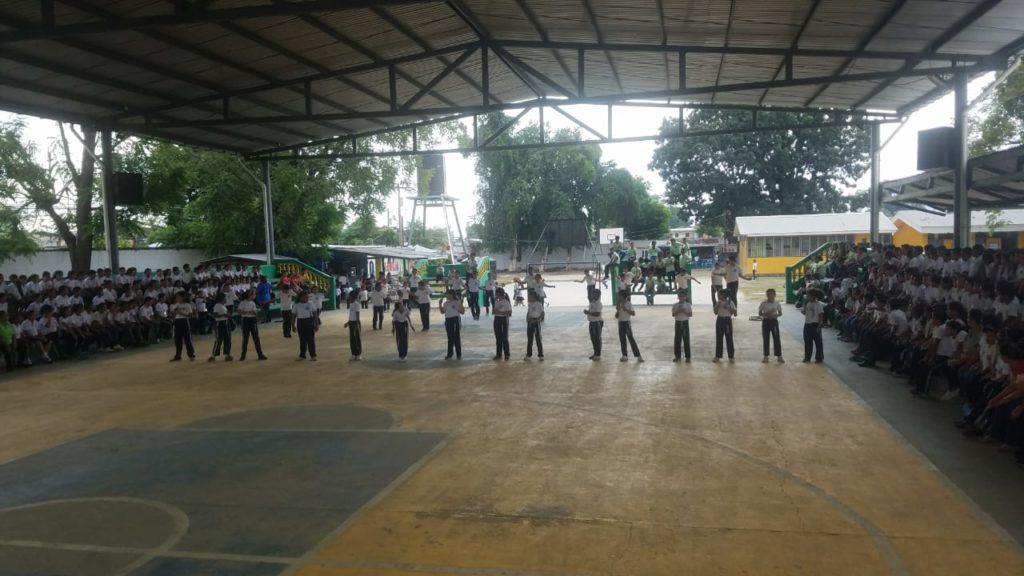
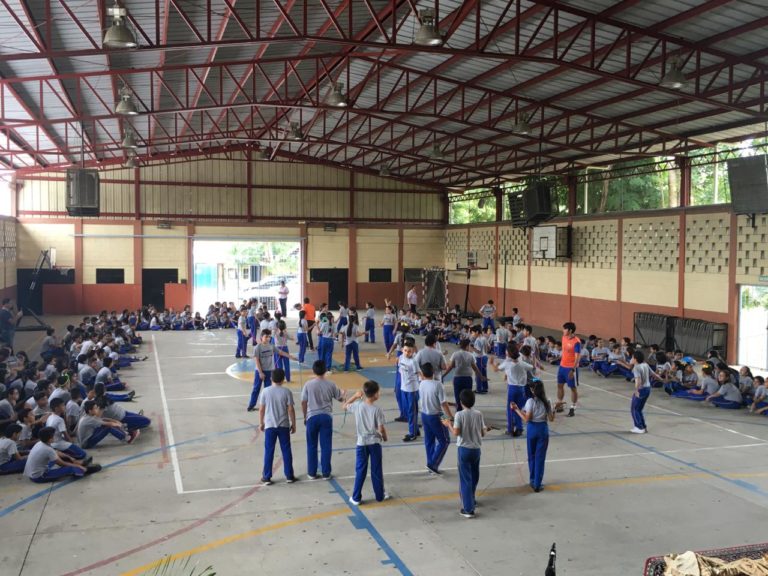
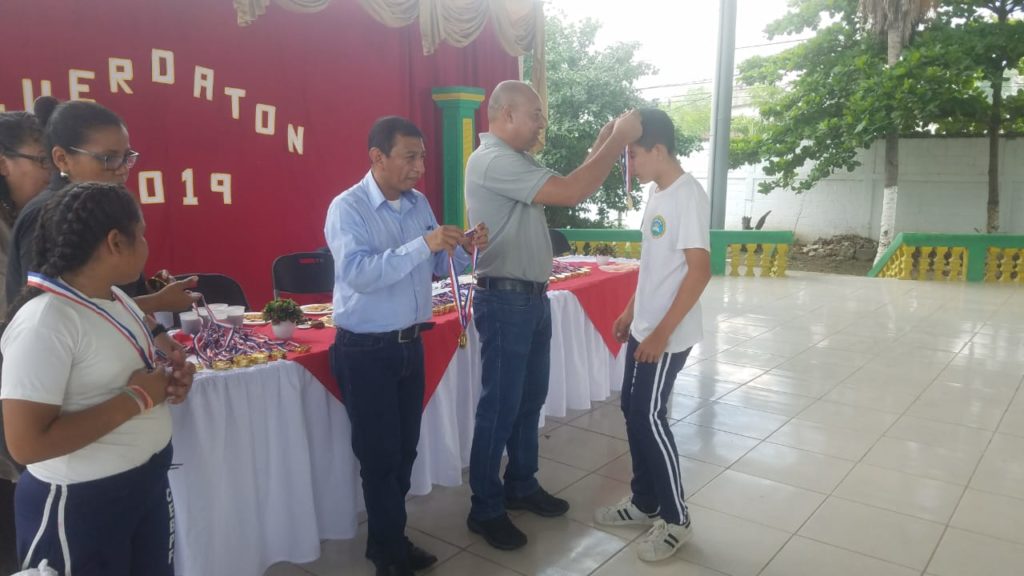
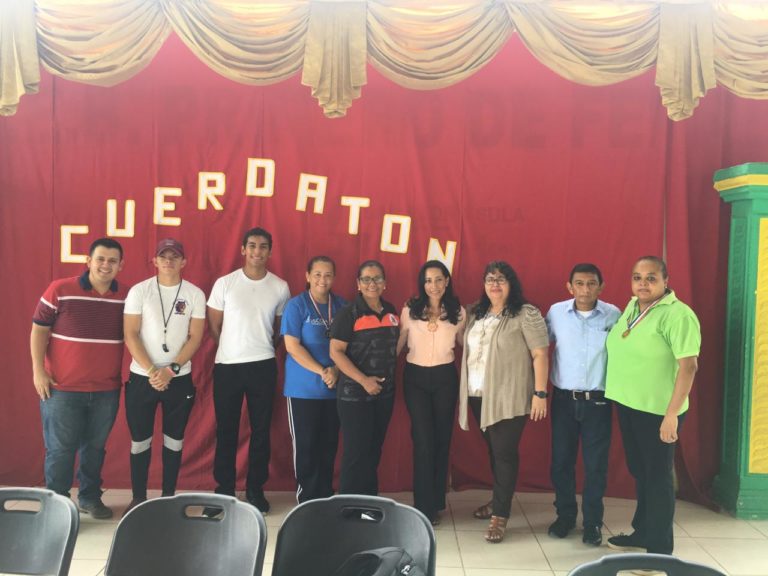
During the month of May 2021, together with the Programa En Movimiento (human movement science web magazine) of the University of Costa Rica, a discussion was held called “Intervention in schoolchildren to promote physical activity in times of pandemic: Families in Movement and Active Mobile Schools ”.
The invited exhibitors: Licda. Patricia Reyes from the Francisco Morazán National Pedagogical University, San Pedro Sula, Honduras and Licda. Grettel Villalobos Víquez from the National University, Costa Rica. To see the video you can do it here.
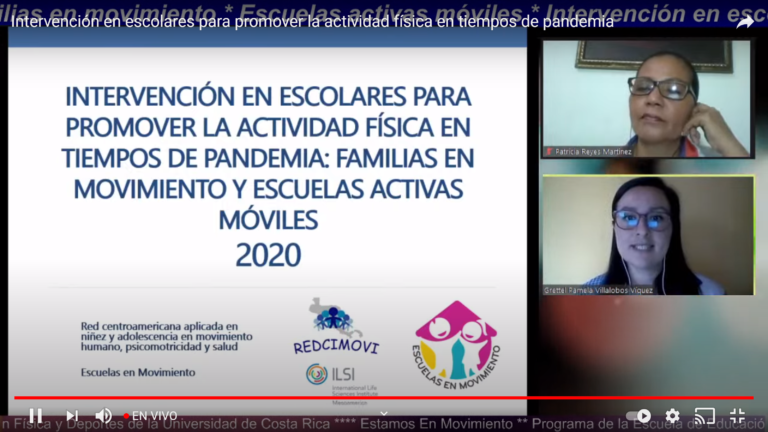
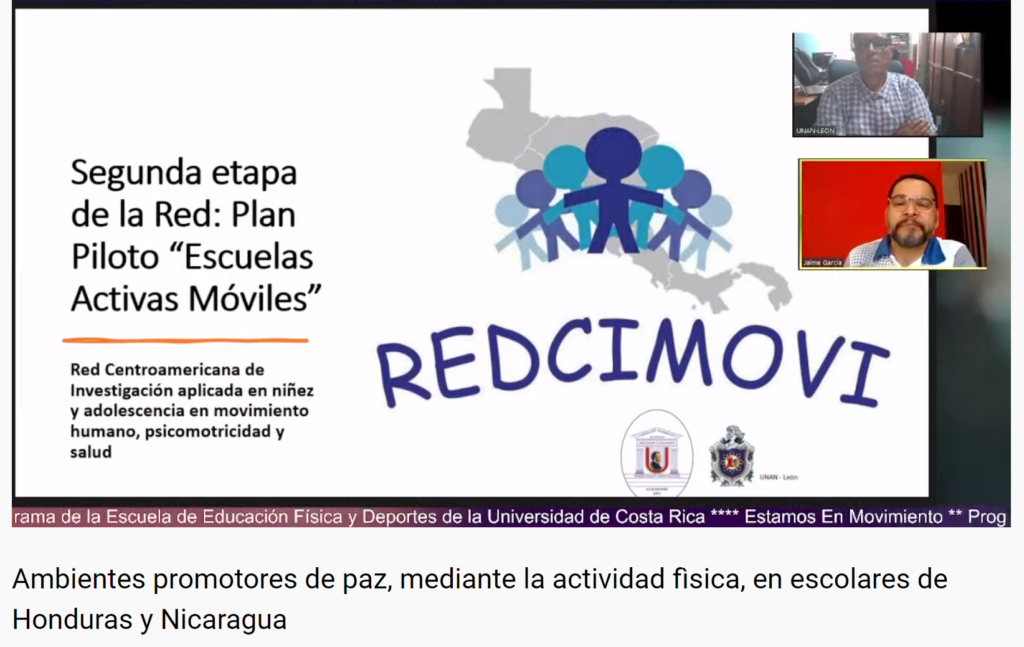
In June, the second participation in the radio program “En Movimiento” of the University of Costa Rica was carried out, exposing the interventions of peace-promoting environments of 2019 in Honduras and Nicaragua.
The invited speakers: Lic. Marvin Gerardo Valle from the National Autonomous University of Nicaragua (UNAN), León, Nicaragua and Lic. Jaime Leonel García from the Francisco Morazán National Pedagogical University, San Pedro Sula, Honduras. To see the video you can do it here.